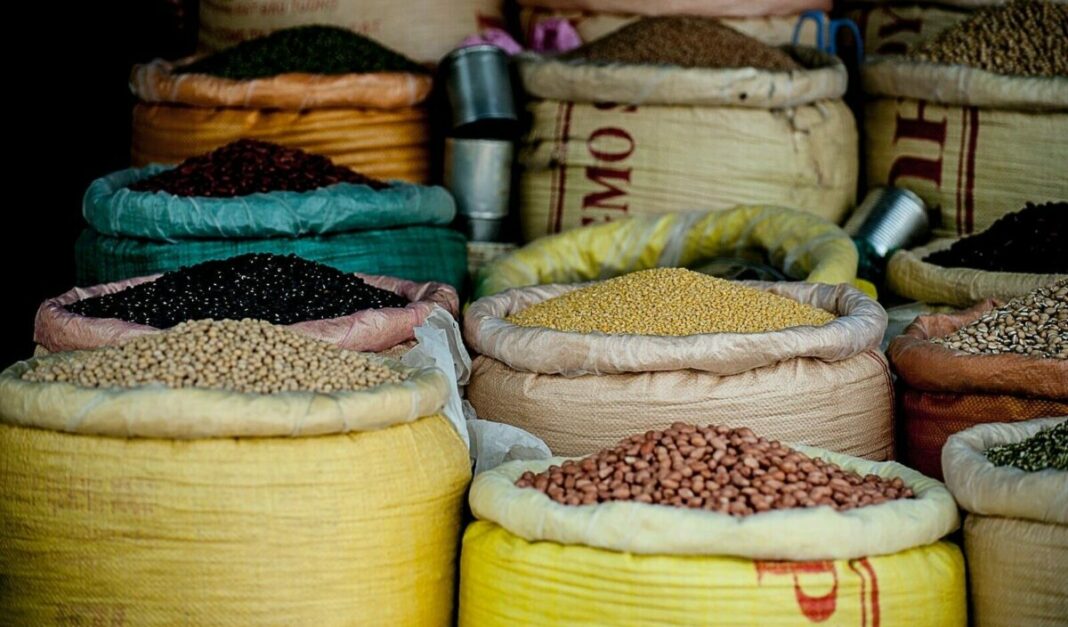The argument is often made about food, as well as about dozens of other “strategic goods”, that we must be self-sufficient in the face of threats to peace around the world.
The argument itself is very old, old enough for the self-sufficiency argument, as well as the feasibility of actually being self-sufficient, to have finally graduated to the status of political myth. Yet this is, unfortunately, a myth that refuses to die. One that continuously puts European nations on the path towards fragile supply chains.
The conflict in Ukraine has disrupted Black Sea agricultural exports, pushing prices higher, and exacerbating high energy and fertilizer costs. As major exporters of grain and vegetable oil, conflict around the Black Sea is significantly disrupting shipping.
In Sudan, the combined effects of conflict, economic crisis, and poor harvests are significantly affecting people’s access to food and have doubled the number of people facing acute hunger in Sudan to around 18 million. The higher grain prices from the war in Ukraine was the final nail.
If fighting in Gaza escalates across the Middle East, (which, fortunately, is looking less likely) it could spark a second energy crisis which could send food and fuel prices spiralling. The World Bank warned that if the conflict were to intensify, it could result in significant price hikes for oil and exacerbate food insecurity, both within the Middle East and globally.
It should be obvious that the most secure food supply, steel supply or fuel supply is one that draws from as many sources as possible, so that if one dries up, or is caught up in a military or diplomatic calamity, then the supply is able to be recovered by increasing trade through the many alternative channels. Its how Qatar, cut off during the blockade in 2017, was able to continue largely unaffected despite being shut off from all its neighbours and producing itself almost no food at all.
The myth’s enduring popularity largely is down to the way it interacts with our basic human psychology. Most of our mental heuristics are learn for much more simplistic problems. The way we’ve learnt to survive is by hoarding and sitting on as large a pile of food as possible. We’re also naturally disinclined to trust our neighbours, let alone rely on them.
Breaking though our prehistoric instincts and embracing what are therefore the counter-intuitive tenets of free trade is thus quite a tall order. Perhaps it explains why free trade remains so unpopular compared to protectionism despite the overwhelmingly positive record that free trade can claim for itself, singlehandedly lifting billions out of poverty.
Convincing the current generation of European politicians to diversify their food supply will always be hard – but the gains are massive if they can see the light.
Regions like Latin America and Southeast Asia stand out as regions where the EU does far too little strategic trade. Being in different hemispheres means that the seasons are opposite (or have massively different climates in the case of Southeast Asian countries like Malaysia), so the benefits to mutual supply chains are naturally complementary. Such countries are primed for mutually beneficial trade to boost strategic security.
Countries like Argentina produce large amounts of meat, something the EU sanitary and phytosanitary rules (SPS) make much more difficult to import than it need be. Malaysia is the world’s largest exporter of palm oil, producing the oils and fats needed across dozens of food categories. Compared to other main oilseeds, such as soybean, rapeseed, and sunflower, which can be grown domestically, oil palm is the highest-yielding oil crop. Making it cheaper and easier to import would mean food security in times of instability, and cheaper staples in times of peace by driving down costs.
More trade also means more influence and more transparency in supply chains. Taking the Malays as an example again, their agrifood industry is embracing the use of blockchain technology and traceability to prove that their products are environmentally friendly and deforestation-free. Trade makes economically viable massive environmental efforts to protect the environment. Conversely, it creates interdependence with regions around the world which reduce the likelihood of conflict or international rulebreaking generally.
The great French economist Frédéric Bastiat wrote that ““When goods don’t cross borders, Soldiers will”. He observed the power of interdependence as a peacekeeper. Diversifying trade is therefore both preparation and prevention. Politicians must overcome their primitive instincts and let the goods flow.






